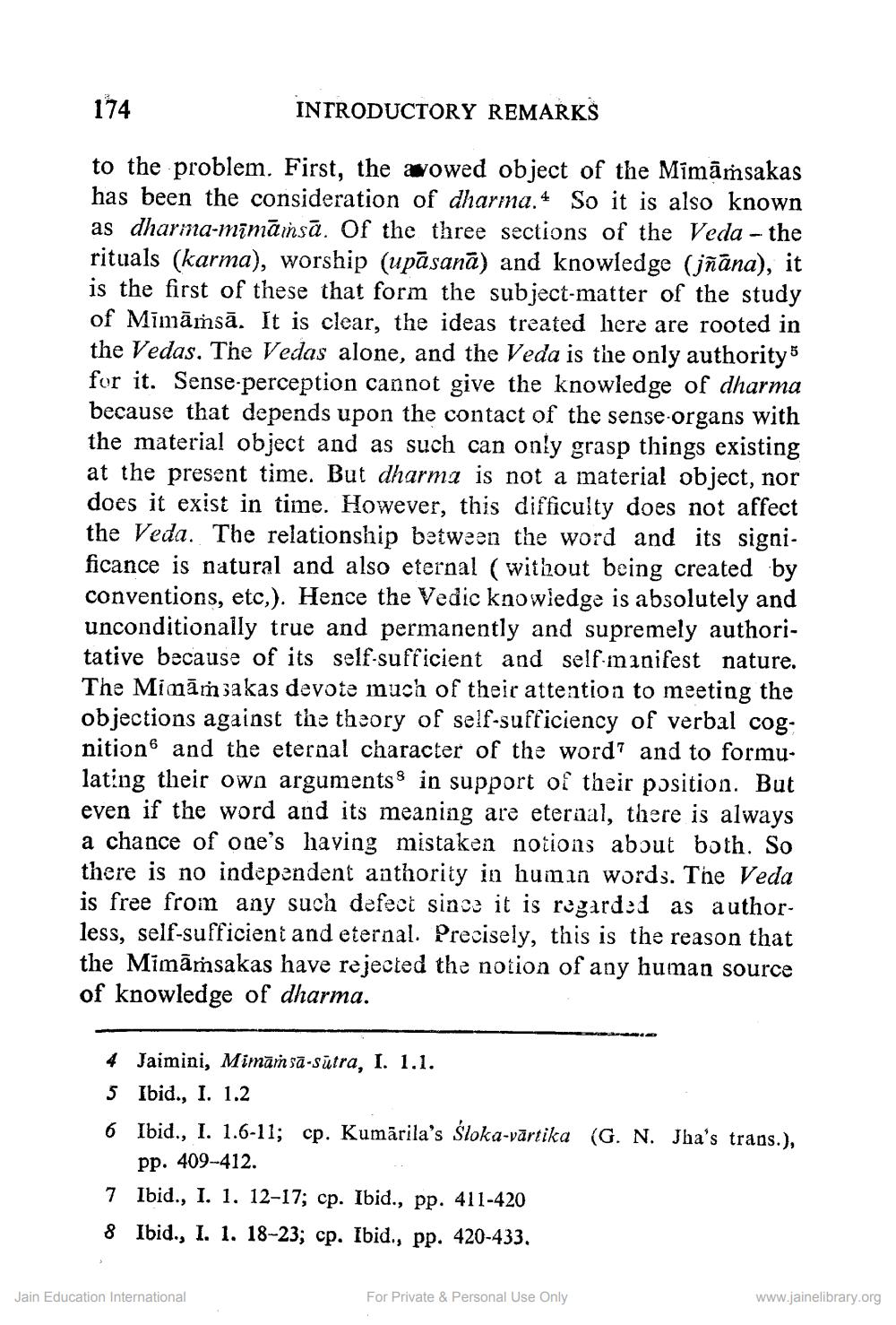________________
174
INTRODUCTORY REMARKS
to the problem. First, the avowed object of the Mimāṁsakas has been the consideration of dharma. 4 So it is also known as dharma-mīmāṁsā. Of the three sections of the Veda - the rituals (karma), worship (upāsanā) and knowledge (jñāna), it is the first of these that form the subject matter of the study of Mimāṁsā. It is clear, the ideas treated here are rooted in the Vedas. The Vedas alone, and the Veda is the only authority 5 for it. Sense perception cannot give the knowledge of dharma because that depends upon the contact of the sense organs with the material object and as such can only grasp things existing at the present time. But dharma is not a material object, nor does it exist in time. However, this difficulty does not affect the Veda. The relationship between the word and its significance is natural and also eternal (without being created by conventions, etc.). Hence the Vedic knowledge is absolutely and unconditionally true and permanently and supremely authoritative because of its self-sufficient and self-inanifest nature. The Mināṁsakas devote much of their attention to meeting the objections against the theory of self-sufficiency of verbal cog, nition and the eternal character of the word? and to formulating their own arguments in support of their position. But even if the word and its meaning are eternal, there is always a chance of one's having mistaken notions about both. So there is no independent anthority in human words. The Veda is free from any such defect since it is regarded as authorless, self-sufficient and eternal. Precisely, this is the reason that the Mimāṁsakas have rejected the notion of any human source of knowledge of dharma.
4 Jaimini, Mimāṁsā-sūtra, I. 1.1. 5 Ibid., I. 1.2 6 Ibid., I. 1.6-11; cp. Kumārila's śloka-vārtika (G. N. Jha's trans.),
pp. 409-412. 7 Ibid., I. 1. 12-17; cp. Ibid., pp. 411-420 8 Ibid., I. 1. 18-23; cp. Ibid., pp. 420-433.
Jain Education International
For Private & Personal Use Only
www.jainelibrary.org




